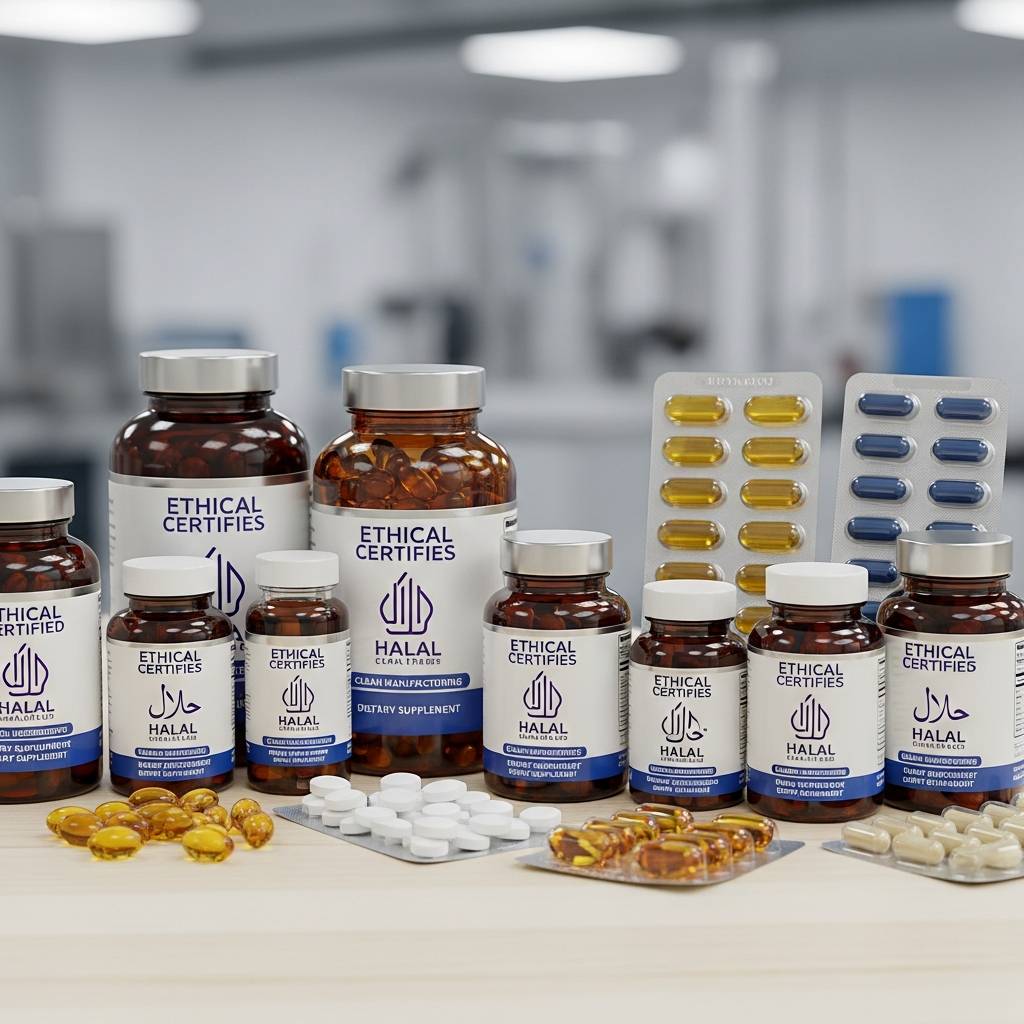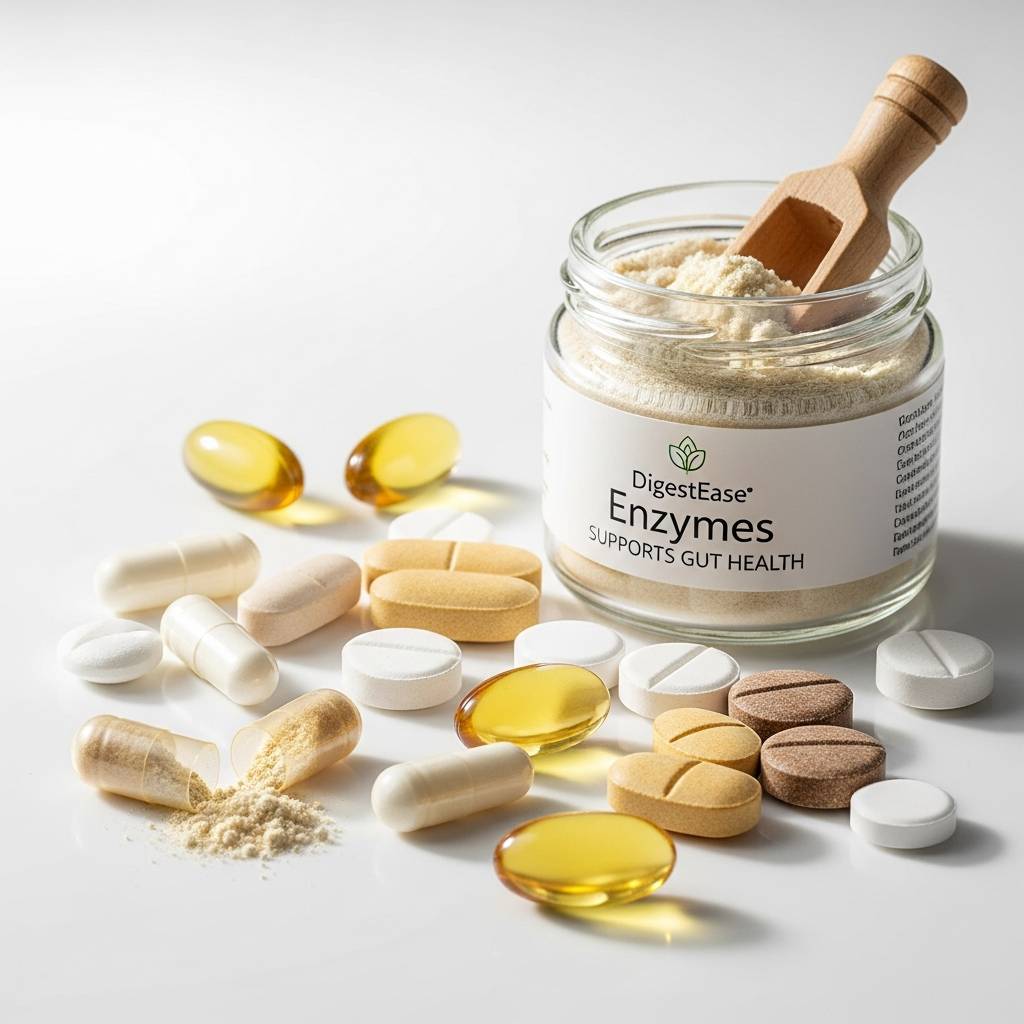Gummy vitamins and supplements have exploded in popularity in recent years, transforming the way many people, especially children and those who dislike swallowing pills, approach their daily nutritional needs. These chewable, often fruit-flavored treats offer a palatable and convenient alternative to traditional tablets and capsules. But beyond their appealing taste and texture, gummy supplements are a complex product category with various formulations, manufacturing considerations, and benefits to understand. This comprehensive article will delve into the world of gummy supplements, exploring their ingredients, advantages, manufacturing processes, and the diverse range of nutrients they can deliver.

What Exactly Are Gummy Supplements?
At their core, gummy supplements are chewable dietary supplements formulated in a gelatin or pectin base, often with added sweeteners, flavorings, and colorings to create a palatable, candy-like product. The active ingredients – vitamins, minerals, herbs, or other nutraceuticals – are carefully incorporated into this base during the manufacturing process.
The key components of a typical gummy supplement include:
-
Gelling Agent: Traditionally, gelatin (an animal-derived protein) was the primary gelling agent, providing the characteristic chewy texture. However, increasingly popular are plant-based alternatives like pectin (derived from fruits) and carrageenan (derived from seaweed), catering to vegetarian and vegan consumers.
-
Sweeteners: To enhance palatability, gummy supplements contain sweeteners. These can range from traditional sugars like sucrose and glucose to sugar alcohols (e.g., maltitol, sorbitol) and non-nutritive sweeteners (e.g., stevia, sucralose), depending on the desired sweetness level and formulation goals (e.g., sugar-free options).
-
Flavorings: A wide array of natural and artificial flavorings are used to create appealing fruit (e.g., berry, citrus, tropical) or other dessert-like tastes.
-
Colorings: Similar to flavorings, colorings can be natural (e.g., from fruits, vegetables, or spices) or artificial, providing visual appeal and often aligning with the flavor profile (e.g., red for strawberry, orange for citrus).
-
Active Ingredients: These are the core of the supplement – the vitamins, minerals, botanical extracts, probiotics, or other nutraceuticals targeted for delivery. The formulation and concentration of these ingredients are crucial for efficacy and regulatory compliance.
-
Other Additives: Manufacturers may also include ingredients like citric acid (for tartness and preservation), preservatives (to extend shelf life), and coating agents (to prevent sticking).
The Appeal and Advantages of Gummy Supplements
Gummy supplements have gained significant traction for several compelling reasons:
-
Enhanced Palatability: This is the primary driver of their popularity, especially among children and adults who find swallowing pills difficult or unpleasant. The sweet, fruity flavors make taking supplements a more enjoyable experience.
-
Ease of Consumption: Gummy supplements are easy to chew and swallow, requiring no water. This makes them convenient for on-the-go use and for individuals with dysphagia (difficulty swallowing).
-
Increased Compliance: The enjoyable taste and ease of consumption can lead to better adherence to supplement regimens, particularly in populations where compliance with traditional pills is low. Parents often find it easier to ensure their children take gummy vitamins.
-
Variety of Formulations: Gummy technology allows for the incorporation of a wide range of vitamins, minerals, and other nutrients, offering diverse options for various health needs.
-
Portion Control: Gummies are typically individually dosed, which can help with portion control and prevent accidental overconsumption.
-
Marketing Appeal: Their fun, colorful appearance and appealing flavors make gummy supplements highly marketable and attractive to a broad consumer base.
Manufacturing Gummy Supplements: A Detailed Process
The production of gummy supplements is a carefully controlled process that ensures consistent quality, accurate dosage, and appealing sensory attributes. The typical manufacturing steps include:
-
Ingredient Preparation: Raw materials, including the gelling agent (gelatin or pectin), sweeteners, flavorings, colorings, and active ingredients, are carefully weighed and prepared according to the specific formulation.
-
Blending and Mixing: The gelling agent is typically dissolved in water and heated. Sweeteners, flavorings, and colorings are then added and thoroughly mixed to create a homogenous syrup.
-
Active Ingredient Incorporation: The precise amount of each active ingredient is carefully added to the syrup and mixed thoroughly to ensure even distribution throughout the batch. This step is critical for ensuring each gummy delivers the labeled potency.
-
Molding: The warm, nutrient-rich syrup is then poured into pre-formed molds. These molds can be made of silicone or starch and come in various shapes and sizes, contributing to the visual appeal of the final product. Automated depositing equipment ensures accurate filling of each mold cavity.
-
Cooling and Solidification: The filled molds are transferred to cooling tunnels or rooms where the syrup gradually cools and the gelling agent sets, giving the gummies their characteristic chewy texture and solid form.
-
Demolding: Once the gummies have solidified sufficiently, they are carefully removed from the molds. Automated demolding equipment is often used for large-scale production.
-
Coating (Optional): Some gummy supplements undergo a coating process. This can involve dusting them with sugar or a sugar alcohol to prevent sticking, or applying a protective coating for specific formulation purposes.
-
Quality Control: Throughout the manufacturing process, rigorous quality control checks are performed. This includes testing the raw materials, monitoring the mixing and molding processes, and analyzing the finished gummies for potency, purity, weight, texture, flavor, and appearance.
-
Packaging: The finished gummy supplements are then packaged into bottles, pouches, or other containers, ensuring proper sealing and labeling according to regulatory requirements.
Regulatory Considerations for Gummy Supplements
Like all dietary supplements, gummy vitamins and supplements are subject to regulations in their respective markets. In the United States, the Food and Drug Administration (FDA) regulates these products under the Dietary Supplement Health and Education Act (DSHEA) and Current Good Manufacturing Practices (cGMPs) for dietary supplements (21 CFR Part 111).
Key regulatory aspects include:
-
cGMP Compliance: Manufacturers must adhere to strict cGMP guidelines to ensure the quality, purity, and consistency of their products. This includes controls over facility design, equipment, personnel training, raw materials, manufacturing processes, packaging, and labeling.
-
Labeling Requirements: Gummy supplement labels must comply with FDA regulations, including listing all ingredients (active and inactive), the Supplement Facts panel (detailing nutrient content), serving size, manufacturer information, and any necessary warnings. Claims made on the label must be truthful and not misleading.
-
Ingredient Safety: While the FDA does not require pre-market approval for dietary supplements, manufacturers are responsible for ensuring the safety of their ingredients.
-
Potency and Purity: Manufacturers must ensure that their gummy supplements contain the labeled amounts of active ingredients throughout their shelf life and are free from harmful contaminants. Stability testing is crucial for verifying potency over time.
-
Marketing and Claims: Marketing materials and claims made about gummy supplements are subject to regulations by the FDA and the Federal Trade Commission (FTC) to prevent deceptive practices.
A Sweet Path to Supplementation: A Diverse Range of Gummy Options
The versatility of gummy manufacturing allows for a wide array of supplement formulations, catering to diverse health needs and consumer preferences. Some common examples include:
-
Multivitamins: Gummy multivitamins are particularly popular for children, providing a broad spectrum of essential vitamins and minerals in a palatable form. Adult gummy multivitamins are also widely available.
-
Single Vitamins: Gummy options exist for individual vitamins like Vitamin C (often flavored with citrus), Vitamin D, Vitamin B12, and biotin.
-
Minerals: While formulating gummy supplements with high concentrations of certain minerals can be challenging due to taste and texture considerations, gummy forms of calcium, zinc, and iron are available.
-
Omega-3 Fatty Acids: Gummy omega-3 supplements offer a fish-oil-free and often fruit-flavored way to obtain these essential fatty acids. Encapsulation within the gummy matrix can help mask any fishy taste or odor.
-
Probiotics: Gummy probiotics are formulated to deliver beneficial live bacteria to the gut. Manufacturers carefully select strains and use protective formulations to ensure viability through the manufacturing process and shelf life.
-
Botanical Extracts: Gummy supplements can incorporate various herbal extracts like elderberry, ashwagandha, and turmeric, often combined with appealing flavors to mask any bitterness.
-
Sleep Aids: Gummy supplements containing melatonin, L-theanine, or other sleep-promoting ingredients are a popular option for those seeking a gentle sleep aid.
-
Specialty Formulas: Gummies are also available for specific health concerns, such as prenatal vitamins, hair/skin/nails support, and immune support.
Navigating Your Gummy Supplement Needs
When choosing gummy supplements, consumers should consider factors such as:
-
Individual Health Needs: Select supplements that contain the specific vitamins, minerals, or other nutrients that address your individual dietary gaps or health goals.
-
Ingredient List: Carefully review the ingredient list, paying attention to the types of sweeteners, flavorings, and colorings used. Individuals with specific dietary restrictions or preferences (e.g., sugar-free, natural colors) should look for suitable options.
-
Dosage and Serving Size: Pay close attention to the recommended serving size and the amount of each nutrient per serving to ensure you are meeting your needs without exceeding recommended upper limits.
-
Brand Reputation and Quality: Choose reputable brands that adhere to cGMP standards and ideally conduct third-party testing for potency and purity.
-
Allergens: Check the label for any potential allergens, such as gelatin (if not plant-based), soy, or nuts.
-
Sugar Content: Be mindful of the sugar content, especially if consuming multiple gummies per day or if you are managing your sugar intake. Opt for sugar-free or lower-sugar options if necessary.
For businesses looking to enter or expand within the thriving gummy supplement market, partnering with an experienced and reliable manufacturer is crucial. Zhongci Health is a private label supplement manufacturer and offers its private label multivitamin gummies as white label adapted to customers needs and requests. From initial formulation and flavor development to navigating regulatory requirements and ensuring high-quality production, a knowledgeable contract manufacturer can guide you through every step. They can offer a range of services, including white label options for quick market entry, custom formulations tailored to specific target audiences and health benefits, and expert advice on packaging design that is both appealing and compliant. By leveraging the expertise of a dedicated manufacturing partner like Zhongci Health, brands can efficiently and effectively bring innovative and desirable gummy supplements to consumers.






